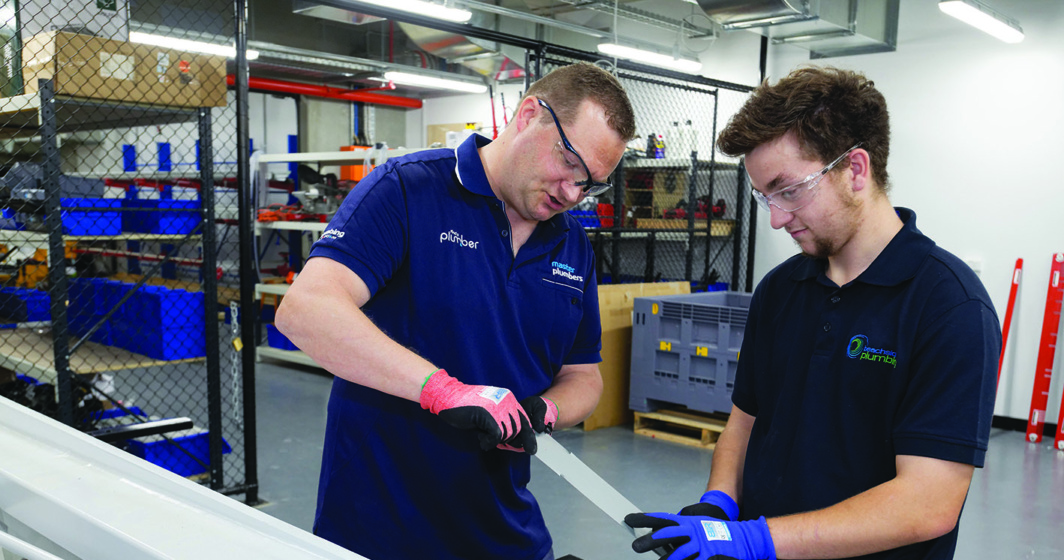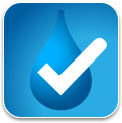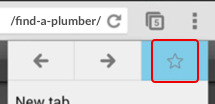Mandatory. The very word brings with it a sense of doom but the proposed Continuing Professional Development reforms in Victoria offer plumbers, the industry and consumers a new level of safety, assurance and professionalism.

In 2024, there are so many pressures on the Plumbing Industry. Whether you are a plumber, a sole trader or a business owner; the cost of living and trading, the expectations of customers and regulators, and the rate of change are hard pills to swallow.
So, when the Department of Transport and Planning (DTP) announces a new Regulatory Impact Statement (RIS) for Continuing Professional Development (CPD) for Plumbing (and building) Practitioners, it is hard not to choke.
But Master Plumbers’ CEO, Peter Daly, is quick with a digestive. He reminds the industry that many, many plumbers have been proactively and voluntarily involved in professional development for decades. After all, you can’t keep up without it.
“In an industry as dynamic as plumbing, where new innovations, technologies, systems, techniques, and materials are being developed, refined, combined, and incorporated into the built environment every day, keeping abreast of changes and reinforcing knowledge is not a nice to have. It is vital to ensure currency,” Peter says.Since 2019, Master Plumbers has been running a highly successful, voluntary CPD program for the plumbing industry. More than 4,000 plumbers are actively participating in the program.
“This will not be a big leap for many Master Plumbers’ members to whom CPD is second nature to ensure currency of skills,” Peter says. However, he adds, introducing a mandatory scheme will not be easy for everyone. “It remains a significant change for the broader plumbing industry,” Peter says. “The Victorian Government needs to recognise this and support the industry as it transitions to a new level of professionalism.”
How did the new reforms come about?
Master Plumbers has been lobbying for mandatory and well-recognised CPD for decades as it seeks to protect plumbers to keep up with changing regulations, technology and products. The peak industry association wants to protect plumbers seeking to do the right thing: updating their training and compliance knowledge, and ensuring their overall professionalism. Why? Because the plumbing industry provides is the first line of defence against disease and hazards in our homes, businesses, and public infrastructure.
“Every day the public relies on the skills and knowledge of plumbing professionals to ensure our water is clean, our sanitation systems work to prevent disease, and that the heating, cooling and fire protection systems in our built environment are properly installed and safely maintained,” Peter says.
In 2020 the Victorian Department of Transport and Planning (DTP) released a Consultation Paper and public survey seeking feedback on high-level options for a CPD framework for building and plumbing practitioners. Since then, DTP has sought feedback on key CPD elements including delivery of courses, formats, and volumes of learning for each category.
DTP heard from a wide range of perspectives from regulatory bodies, including Master Plumbers, registered training organisations, trade unions, water authorities, and individual practitioners across the sector. CPD is not about formal classroom training, like TAFE, Peter says. “Modern learning comprises a range of self-paced activities, including online videos and webinars, as well as face-to-face sessions. Any single activity might range from 15 minutes to an hour or so, and can be done at work, at home and sometimes as an organised activity like the Master Plumbers’ Pub Nights, which combine real learning with a chance to catch up with colleagues in person.
But how would any mandatory CPD be monitored? Amendments made to the Building Act 1993 in 2016 and 2018 allow the Victorian Building Authority (VBA) to consider whether a person has complied with any prescribed CPD requirements when deciding to renew a building practitioner registration or plumbing registration or licence.
What does the proposed CPD reform mean for you?
There are three options, all which cite: “The Regulations would prescribe the amount of CPD that must be completed in a practitioner’s registration/licence period”.
The differences are:
Option 1 – Practitioner-led approach:
Would not mandate certain CPD topics or types of activities.
Option 2 – Government-directed approach:
All topics and types of activities to be prescribed in the Regulations or set each year by the VBA.
Option 3 – Combination approach:
The Regulations mandate a minimum amount to be completed in broadly defined topics and types of learning (such as technical knowledge). The remaining balance of points could be gained through self-directed learning activities. Option 3 also includes two pathways for practitioners to meet CPD requirements: enrol in an approved industry run CPD program or through individual accumulation of points.
What is your industry body saying?
Master Plumbers and the broader plumbing industry agrees with a mandatory scheme covering all of Victoria’s 31,000 registered and licensed plumbers, irrespective of location and available at times that are flexible.
However, Peter Daly warns against the mandatory scheme being a “compliance driven tick-a-box exercise”.
“The key to a successful scheme is to be industry led and industry driven. The design and operation of CPD needs to be relevant and valuable to practitioners and have the right mix of technical and professional development activity. It must be available irrespective of location and flexible enough to do at any time. Critically, it must get and maintain practitioner buy-in,” Peter says.
In preparing Master Plumbers comprehensive formal response to the RIS, he noted that industry associations are critical to successfully designing and executing CPD programs, including the phasing in of the mandatory scheme.
Option 3 is also the preferred option also of Master Plumbers. Peter says: “It takes a sensible and balanced approach to prescribing minimum CPD requirements for all practitioners.
“It balances choice and flexibility for practitioners and provides an adequate level of assurance to government and the community that practitioners are undertaking valuable and relevant activities to continue to remain current, competent, and, most importantly safe.”
Master Plumbers also supports the proposed pathways proposed for practitioners:
- Pathway A for those who wish to identify and complete individual activities that will satisfy the minimum requirements.
- Pathway B for those who wish to enrol in and complete the requirements of an approved industry based CPD program.
Master Plumbers is seeking clarification on how Pathway B would work and takes a strong view that the ‘program’ pathway should be a broad-based scheme covering the CPD needs of potential participants across the vast majority (if not all) the license classes and types of plumbing works.
“We recognise that we already offer this style of CPD and we see it has worked well for our members,” Mr Daly said. “We will look to ensure that our system will focus on delivery that will allow members to participate no matter where they live and work, and delivered in a way that ensures maximum flexibility.”
Master Plumbers is also seeking clarity on how:
- The two Pathways (A and B) work together.
- The Department will ensure the integrity and of the learning content.
- CPD program providers’ accreditation would work to ensure for-profit entities do not exploit the scheme.
- The scheme rollout.
- We ensure consistency in the CPD framework and points system nationally.
“We believe there is a strong need for the Department to undertake further detailed discussion of how this might work in practice with Master Plumbers, especially in the context of Master Plumbers’ custodianship of a very significant industry CPD scheme, which is already in place and operating efficiently and effectively.”
Master Plumbers will continue to advocate for members and will continue to provide details as the discussion progress.
Strong in-principle support
A Mandatory CPD scheme in Victoria has support among the industry but there are still big questions to resolve to ensure full support.
Option 3 as preferred. This option reads: The Regulations would prescribe the amount of CPD that must be completed in a practitioner’s registration/licence period. The Regulations mandate a minimum amount to be completed in broadly defined topics and types of learning (such as technical knowledge). The remaining balance of points could be gained through self-directed learning activities. Option 3 also includes two pathways for practitioners to meet CPD requirements: enrol in an approved industry run CPD program or through individual accumulation of points.
This is also the preferred option of Master Plumbers and our valued industry partners PICAC, the Plumbing and Pipe Trades Employees Union, National Fire Industry Association of Australia and the Air Conditioning and Mechanical Contractors Association, which together with Master Plumbers collectively comprise the representative bodies for the plumbing and fire industry in Victoria.
Share this Article






